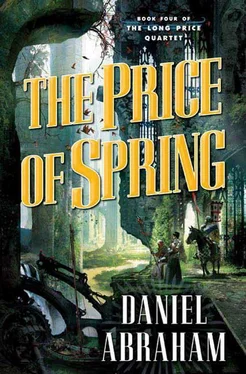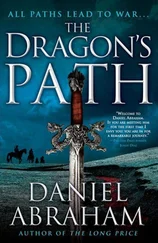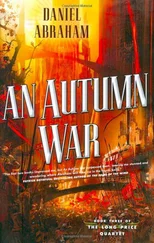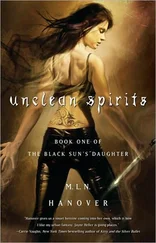Daniel Abraham - Price of Spring
Здесь есть возможность читать онлайн «Daniel Abraham - Price of Spring» весь текст электронной книги совершенно бесплатно (целиком полную версию без сокращений). В некоторых случаях можно слушать аудио, скачать через торрент в формате fb2 и присутствует краткое содержание. Жанр: Фэнтези, на английском языке. Описание произведения, (предисловие) а так же отзывы посетителей доступны на портале библиотеки ЛибКат.
- Название:Price of Spring
- Автор:
- Жанр:
- Год:неизвестен
- ISBN:нет данных
- Рейтинг книги:5 / 5. Голосов: 1
-
Избранное:Добавить в избранное
- Отзывы:
-
Ваша оценка:
- 100
- 1
- 2
- 3
- 4
- 5
Price of Spring: краткое содержание, описание и аннотация
Предлагаем к чтению аннотацию, описание, краткое содержание или предисловие (зависит от того, что написал сам автор книги «Price of Spring»). Если вы не нашли необходимую информацию о книге — напишите в комментариях, мы постараемся отыскать её.
Price of Spring — читать онлайн бесплатно полную книгу (весь текст) целиком
Ниже представлен текст книги, разбитый по страницам. Система сохранения места последней прочитанной страницы, позволяет с удобством читать онлайн бесплатно книгу «Price of Spring», без необходимости каждый раз заново искать на чём Вы остановились. Поставьте закладку, и сможете в любой момент перейти на страницу, на которой закончили чтение.
Интервал:
Закладка:
Each of the cities had had one, and each city had shaped its trade and commerce to exploit the power of its particular andat to the advantage of its citizens. War had never come to the cities of the Khaiem. No one dared to face an enemy who might make the mountains flow like rivers, who might flood your cities or cause your crops to fail or your women to miscarry. For almost ten generations, the cities of the Khaiem had stood above the world like adults over children.
And then the Galtic general Balasar Gice had made his terrible wager and won. The andat left the world, and left it in ruins. For a blood-soaked spring, summer, and autumn, the armies of Galt had washed over the cities like a wave over sandcastles. Nantani, Udun, Yalakeht, Chaburi-Tan. The great cities fell to the foreign swords. The Khaiem died. The Dai-kvo and his poets were put to the sword and their libraries burned. Eiah still remembered being fourteen summers old and waiting for death to come. She had been only the daughter of the Khai Machi then, but that had been enough. The Galts, who had taken every other city, were advancing on them. And their only hope had been Uncle Maati, the disgraced poet, and his bid to bind one last andat.
She had been present in the warehouse when he'd attempted the binding. She'd seen it go wrong. She had felt it in her body. She and every other woman in the cities of the Khaiem. And every man of Galt. Corruptingthe-Generative, the last andat had been named.
Sterile.
Since that day, no woman of the cities of the Khaiem had borne a child. No man of Galt had fathered one. It was a dark joke. Enemy nations locked in war afflicted with complementary curses. Yourhistory will be written by half-breeds, Sterile had said, or it won't be written. Eiah knew the words because she had been in the room when the world had been broken. Her own father had taken the name Emperor when he sued for peace, and Emperor he had become. Emperor of a fallen world.
Perhaps Parit was right. Perhaps she had taken to her vocation as single-mindedly as she had because she wanted to be something else. Something besides her father's daughter. As the princess of the new empire, she would have been a marriage to some foreign ward or king or lord incapable of bearing children. The degraded currency of her body would have been her definition.
Physician and healer were better roles to play. Walking through the darkened streets of Saraykeht, her robes and her satchel afforded her a measure of respect and protection. It was poor form to assault a healer, in part because of the very real chance of requiring her services one day. The toughs and beggars who haunted the alleys near the seafront might meet her eyes as she walked past, might even hail her with an obscenity or veiled threat, but they had never followed her. And so she didn't see that she had any need of the palace guard. If her work protected her, there was no reason to call upon her blood.
She stopped at the bronze statue of Shian Sho. The last emperor gazed out wistfully over the sea, or perhaps back through the ages to a time when his name had been important. Eiah pulled her robe tight around herself and squatted at his metalwork feet, waiting for the firekeeper and his steamcart. In daytime, she would have walked the streets north and uphill to the palaces, but the seafront wasn't the worst part of Saraykeht. It was safer to wait.
To the west, the soft quarter was lit in its nightly festival. To the east, the bathhouses, the great stone warehouses, rarely more than half-filled now. Beyond that, the cohort houses of the laborers were darker, but far from unpeopled. Eiah heard a man's laugh from one direction, a woman's voice lifted in drunken song from another. The ships that filled the seafront docks stood silent, their masts like winter trees, and the ocean beyond them gray with a low mist.
There was a beauty in it, and a familiarity. Eiah had made her studies in places like this, whatever city she'd been in. She'd sewn closed the flesh of whores and thieves as often as soothed the coughs and pains of the utkhaiem in their perfumed palaces. It was a decision she'd made early in her career, not to be a court physician, not to care only for the powerful. Her father had approved, and even, she thought, been proud of the decision. For all their differences-and there were many-it was one reason she loved him.
The steamcart appeared first as a sound: the rough clatter of iron-bound wheels against the bricks of the street, the chuff of the boiler, the low rumble of the kiln. And then, as Eiah stood and shook the dirt and grime from her robe, it turned into the wide street they called the Nantan and came down toward the statue. In the light of the kiln, she saw seven or perhaps eight figures clinging to the cart's side. The firekeeper himself sat on the top, guiding the cart with a series of levers and pedals that made the most ornate loom seem simple. Eiah stepped forward as the cart trundled past, took one of the leather grips, and hoisted herself up to the cart's side runner along with the others.
"Two coppers," the firekeeper said without looking at her.
Eiah dug in her sleeve with her free hand, came out with two lengths of copper, and tossed them into the lacquer box at the firekeeper's feet. The man nodded rather than take any more-complex pose. His hands and eyes were occupied. The breeze shifted, a waft of smoke and thick steam washing her in its scent, and the cart lurched, shuddered, and turned again to the north along its constant route. Eiah sighed and made herself comfortable. It would take her almost the time for the moon to move the width of her hand before she stepped down at the pathway that led to the palaces. In the meantime, she watched the night city pass by her.
The streets nearest the seafront alternated between the high roofs of warehouses and the low of the tradesmen's shops. In the right season, the clack of looms would have filled the air, even this late at night. The streets converged on wide squares where the litter of the week's market still fouled the street: cheeses dropped to the cobbles and trod into mush, soiled cabbages and yams, even a skinned rabbit too corrupt to sell and not worth hauling away. One of the men on the far side of the steamcart stepped down, shifting the balance slightly. Eiah watched as his red-brown cloak passed into darkness.
There had been a time, she knew, when the streets had been safe to walk down, even alone. There had been a time beggars with their boxes would have been on the corners, filling the night with plaintive, amateur song. She had never seen it, never heard it. It was a story she knew, Old Saraykeht from long ago. She knew it like she knew Bakta, where she had never been, and the courts of the Second Empire, gone from the world for hundreds of years. It was a story. Once upon a time there was a city by the sea, and it lived in prosperity and innocence. But it didn't anymore.
The steamcart passed into the compounds of the merchant houses, three, four, five stories tall. They were almost palaces in themselves. There were more lights here, more voices. Lanterns hung from ropes at the crossroads, spilling buttery light on the bricks. Three more of Eiah's fellows stepped down from the cart. Two stepped on, dropping their copper lengths into the firekeeper's box. They didn't speak, didn't acknowledge one another. She shifted her hands on the leather grip. The palaces of the utkhaiem would be coming soon. And her apartments, and bed, and sleep. The kiln roared when the firekeeper opened it and poured in another spade's worth of coal.
The servants met her at the gateway that separated the palaces from the city, the smooth brick streets from the crushed marble pathways. The air smelled different here, coal smoke and the rich, fetid stink of humanity displaced by incense and perfume. Eiah felt relieved to be back, and then guilty for her relief. She answered their poses of greeting and obeisance with one of acknowledgment. She was no longer her work. Among these high towers and palaces, she was and would always be her father's daughter.
Читать дальшеИнтервал:
Закладка:
Похожие книги на «Price of Spring»
Представляем Вашему вниманию похожие книги на «Price of Spring» списком для выбора. Мы отобрали схожую по названию и смыслу литературу в надежде предоставить читателям больше вариантов отыскать новые, интересные, ещё непрочитанные произведения.
Обсуждение, отзывы о книге «Price of Spring» и просто собственные мнения читателей. Оставьте ваши комментарии, напишите, что Вы думаете о произведении, его смысле или главных героях. Укажите что конкретно понравилось, а что нет, и почему Вы так считаете.









